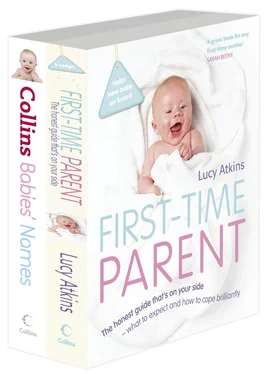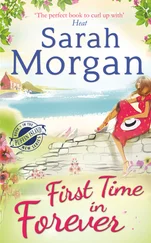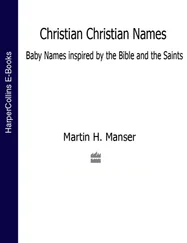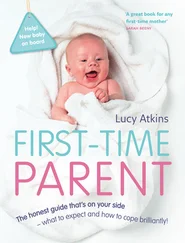Brannan see Brenna
Breanna f.
This new name, which has developed in the USA, can either be seen as a blend of the names Bree (a pet form of BRIDGET) and Anna, or as a development of BRIANNA, a feminine form of BRIAN. It is also used in the form Breanne, and found in spellings such as Breeanna and Brieanne.
Bree see Bridget
Bren see Brenna
Brenda f.
Probably a feminine form of the Norse name Brand, meaning ‘a sword’, found in the Shetlands. It was used by Walter Scott in his novel The Pirate. However, in practice, it has been used more frequently as a feminine form of BRENDAN.
Brendan, Brandon m.
An Irish name meaning either ‘with stinking hair’, or, according to one authority, from the Welsh word meaning ‘prince’. It is most famously found in the 6th-century Irish St Brendan the Navigator, credited in legend with the discovery of America. It is today particularly popular in Ireland, Australia and the USA. The form Brandan or Brandon has a long history as an alternative form of Brendan, but can also come from an Old English place and surname meaning ‘a hill where broom grows’. The name is also spelt Brandin, Brandyn, Brenden and Brendon.
Brenna f., Brennan m.
Brennan is a pet form of the Irish name Bren, which probably means ‘tear, sorrow’, with Brenna a modern feminine form. Since the earliest records this name and Bran, ‘raven’, and its pet form Brannan have regularly been confused, and it is not always possible to tell which form of the name has come from which source.
Bret(t) m.
From an Old French word meaning ‘a Briton’ or ‘a Breton’. It is currently well used in the USA.
Brian m., Brianna f.
A Celtic name, the origin of which is obscure, though it may be derived from words meaning ‘hill’ or ‘strength’. It was known mainly in Celtic areas until the Norman Conquest, when it was introduced to England. Brian Boru was a famous Irish King of the 11th century, who defeated the invading Vikings.
The name continued to be popular in England until Tudor times, but after that it disappeared until it was reintroduced from Ireland in the 18th century. Today the spellings Bryan, Brien and Brion are found, and Bryant or Briant, originally a surname developed from the name Brian, is also found. Brianna, Bryan(n)a and Brianne (Bryanne) are used as feminine forms, as is BRYONY.
Brice m.
Brice, possibly meaning ‘speckled’, is an old Gaulish name, the name of a 5th-century French saint and bishop of Tours, which is now well used in the USA, often in the form Bryce. The surname which developed from the first name, Bryson, is also found used as a first name.
Bridget f.
Brigit was the ancient Irish goddess of poetry whose name meant ‘strength’. Her name was borne by 5th-century St Brigit of Kildare, the most revered of the Irish female saints. The Irish name also appears in the forms Bri(d)gid and Bride (which reflects the Irish pronunciation of the name, with a long ‘ee’ sound and no ‘g’), with the diminutives Bridie, Biddy, Bree (now sometimes Brea) and the older elaboration Bidelia. Brigidine is a variant chosen by Sinead O’Connor for her child. There is also a Swedish saint Birgitta or Brigitta whose feast day falls on the same day as St Brigit’s, and her name has influenced the most common English form of the name, Bridget. Britt is a pet form of the Swedish name.
Brien see Brian
Brigid, Brigit, Brigitta see Bridget
Brin see Bryn
Brion see Brian
Briony see Bryony
Britt see Bridget
Brittany f.
This French place name began to be used as a name for American girls in the 1960s, for reasons which are unclear. The sound of the name rather than its meaning seems to be important, as it also occurs as Britanee, Britani, Britney (made famous by Britney Spears) and Brittney. In the 1980s a sudden surge in popularity took it to the top of the American name charts and use is growing in the UK.
Bronwen f.
From the Welsh words meaning ‘white breast’. This name has long been popular in Wales where it has strong associations with ancient legend.
Brooke f. and m.
The surname meaning ‘a brook’, used as a first name, made famous by the actress Brooke Shields. The American place name Brooklyn, most famously used in the UK for a boy, Brooklyn Beckham, is more often used for girls in the USA, and is treated as if a blend of Brooke and LYN in forms such as Brooklynne.
Bruce m.
A French surname which came to Britain at the time of the Norman Conquest. Members of the family moved to Scotland where a descendant of one, Robert Bruce, became King of Scots, and was the ancestor of the Stewart or Stuart Kings. Bruce has only been used as a first name since the 19th century, but it proved so popular in Australia in the mid 20th century that it is almost a nickname for an Australian man. Brucie is a pet form.
Bruno m.
This is a German name meaning ‘brown’, probably imported to the UK via the USA where it has been established for longer.
Bryan see Brian
Bryce see Brice
Bryn m.
A Welsh name, originally describing where someone lived, meaning ‘hill’. It can be found as Brin, and Brynmor (‘large hill’) is also used.
Bryony f.
Bryony, or Briony, is the name of the climbing hedgerow plant used as a girl’s name. It is a rather insignificant plant, although it has pretty berries, and the name probably owes its popularity to the fact that it can be used as a female equivalent to BRIAN.
Buddy m.
This word for a friend is occasionally used as a first name, but is usually a nickname. The singer Buddy Holly, for example, was christened Charles.
Buffy see Elizabeth
Bunny see Berenice
Bunty f.
This was a traditional name for a pet lamb, which came into use for girls after 1911, when it was featured in a very successful play called Bunty Pulls the Strings. However, it is used more commonly as a nickname.
Burhan m.
An Arabic name meaning ‘evidence’ or ‘proof’. Burhanuddin means ‘proof of faith’.
Burt see Bert
Byron m.
A name more frequently used in America than Britain, though it honours the English poet Lord Byron (1784–1824). Byron comes from the word ‘byre’, which means a cow-shed or barn. The name may have originally indicated someone who lived near a barn.
Конец ознакомительного фрагмента.
Текст предоставлен ООО «ЛитРес».
Прочитайте эту книгу целиком, купив полную легальную версию на ЛитРес.
Безопасно оплатить книгу можно банковской картой Visa, MasterCard, Maestro, со счета мобильного телефона, с платежного терминала, в салоне МТС или Связной, через PayPal, WebMoney, Яндекс.Деньги, QIWI Кошелек, бонусными картами или другим удобным Вам способом.












